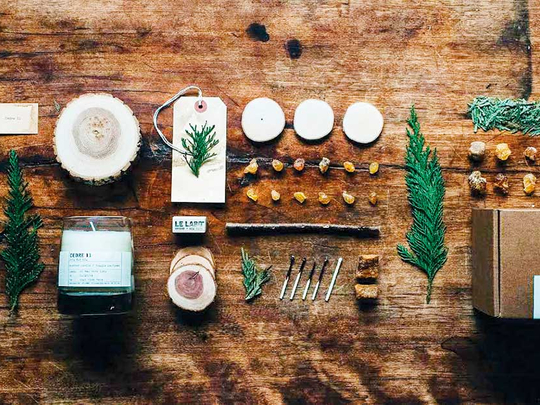
Environment friendly, cruelty free, eco-conscious; these are not just marketing buzz words anymore. Nor are these ideologies confined to the altruistic world of yogis and the alternative leanings of the hippies. They have become a way of life for a growing percentage of the global population.
Recent reports suggest that there has been a 600 per cent increase in the number of people identifying as vegans in the USA in the last three years. In the UK, their numbers have increased by 350 per cent in the last decade. If the rise of vegan restaurants and cafes is any indicator, the UAE too is home to a growing number of people living a vegan life.
In 2015, British fashion designer Stella McCartney spoke to industry bible, Business of Fashion: “The consumption of animals — whether you’re wearing them or eating them — is extraordinarily damaging to the planet. There are over a billion animals killed a year for food, half of which don’t even get eaten. And there’s over 50 million animals killed just for fashion.” Her label, not surprisingly, is no leather, no fur, no skins, no feathers.
Last year, as Gucci went fur-free and consistent vegan alternatives to leather emerged, the interiors industry was not far behind. Peta announced its first Vegan Homeware awards (they recently concluded its second iteration), and accessible interior brands begun exploring what being cruelty-free could mean for its product range and the planet.
For over 23 years, The White Company has shunned fast fashion and quick consumerism to build a brand that is not only timeless, but is also conscious of the crafts and materials that go into creating its impeccably finished, uncomplicated home products. Made in Portugal from exquisitely smooth 400-thread-count Egyptian-cotton sateen, their Camborne Bed Linen Collection is sophisticated and super luxurious. What’s even better? No silkworms were harmed to create them.
Anthropologie, the Pennsylvania-based curator of fine living has nurtured partnerships with both established and upcoming artists for more than a quarter of a century to create an ethical assortment that includes furniture and home accessories. Their sofa, Angelina, won Peta’s Best Vegan Sofa category this year. Made from dolly wool, a handcrafted polyester, the makers delivered a rich textural and tonal quality without resorting to traditional wool upholstery.
Inventing reliable and performance oriented materials is key to sustainable growth of the vegan interiors market and Slovakian designer Simon Kern is ahead of the curve. His Beleaf chair features a tubular steel skeleton, which is nothing unique on its own. Combine that with the ergonomic seat he created by pressing fallen leaves and bio-resin made from leftover cooking oil into a mould, and you have a piece of furniture that could easily be replaced if it gets worn out or broken. The damaged seat can be put under a tree where it merges into the soil and becomes fertiliser.
No home is ever truly complete without a signature fragrance. New York-based Le Labo offers a vegan alternative to the overstocked market of home fragrances. Founded in 2006 by Eddie Roschi and Fabrice Penot, the brand follows its vegan founders’ need to live in coherence with their values. As a result, their formulations do not include animal products, parabens, preservatives or coloration, and are not tested on animals. The scent of a cruelty-free business model is sweet; Le Labo was bought by Estee Lauder in 2014.
Unlike other interior trends, going vegan at home is not a fickle, marketing driven phase. You know it is here to stay when fast moving interior labels like Ikea and Zara start investing in animal-free, guilt-free home products.







